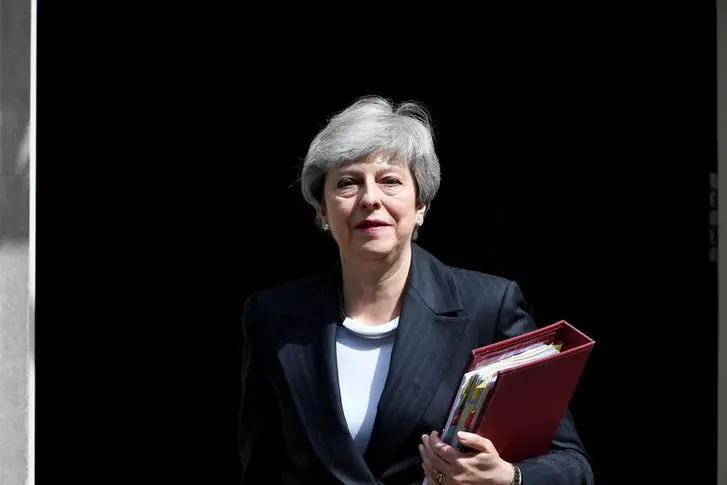PHOTO
LONDON - British Prime Minister Theresa May's final Brexit gambit was in tatters on Wednesday just hours after her offer of a vote on a second referendum and closer trading arrangements failed to win over either opposition lawmakers or many in her own party.
Nearly three years since Britain voted 52% to 48% to leave the European Union, May is trying one last time to get her divorce deal approved by the British parliament before her crisis-riven premiership ends.
May appealed to lawmakers on Tuesday to get behind her deal, offering the prospect of a possible second referendum on the agreement and closer trading arrangements with the EU as incentives.
But the backlash was fierce. Both ruling Conservative and opposition Labour lawmakers lined up to criticise May's Withdrawal Agreement Bill, or WAB, legislation which implements the terms of Britain's departure. Some upped efforts to oust her.
"The proposed second reading of the WAB is clearly doomed to failure so there really is no point wasting any more time on the prime minister's forlorn hope of salvation. She's got to go," Andrew Bridgen, a Conservative lawmaker, told Reuters.
"It's now clear that the overwhelming majority of the parliamentary party, the voluntary party and the electorate now agree. She has to go."
He is one of many Conservatives to reject the deal, something that has driven other leadership contenders hoping to replace May to also oppose the agreement. Boris Johnson, the bookmakers' favourite to be Britain's next prime minister, said he would not vote for it.
More Conservative lawmakers handed over letters to the 1922 Committee, a Conservative group that can make or break party leaders, to demand a no confidence vote in May, whose strategy to leave the EU has been left in tatters.
Several lawmakers, including Labour's Brexit policy chief Keir Starmer, said there was little point holding the vote on her bill, which most agreed had no chance of passing a deeply divided parliament.
DEADLOCK
The impasse in London means it is unclear how, when or even if Britain will leave the European club it joined in 1973. The current deadline to leave is Oct. 31.
Britain’s labyrinthine crisis over Brexit has stunned allies and foes alike, and with deadlock in London, the world's fifth largest economy faces an array of options including an exit with a deal to smooth the transition, a no-deal exit, an election or a second referendum.
The pound weakened as some traders said they saw the rising chance of a no-deal Brexit.
U.S. investment bank JPMorgan raised its probability of a no-deal Brexit to 25% from 15%, saying its base case was that Johnson would become prime minister followed by a general election.
JPMorgan raised the probability of an Article 50 extension to 60% versus 50% before and cut the probability of exit on the terms of May's Withdrawal Agreement to 15% from 35%.
Labour leader Jeremy Corbyn said his party could not vote for the Withdrawal Bill, describing May's new offer as "largely a rehash of the government's position" in talks with the opposition that broke down last week.
"It's far too weak. It doesn't really offer anything new or anything bold," Labour's Starmer said.
"It's already pretty clear that it's heading for a pretty big loss and I think frankly the prime minister would do well to just admit defeat and I think she should announce today that she's not going to put the vote because it's clearly heading in the wrong direction."
But May, who has shown little appetite to change course, wrote to Corbyn, asking him to compromise.
"I have shown today that I am willing to compromise to deliver Brexit for the British people," May wrote. "The WA is our last chance to do so," May said.
"I ask you to compromise too so that we can deliver what both our parties promised in our manifestos and restore faith in our politics," she said.
(Writing by Guy Faulconbridge and Elizabeth Piper; Editing by William Maclean and Alison Williams) ((mailto:guy.faulconbridge@thomsonreuters.com; 07825218698;))




















